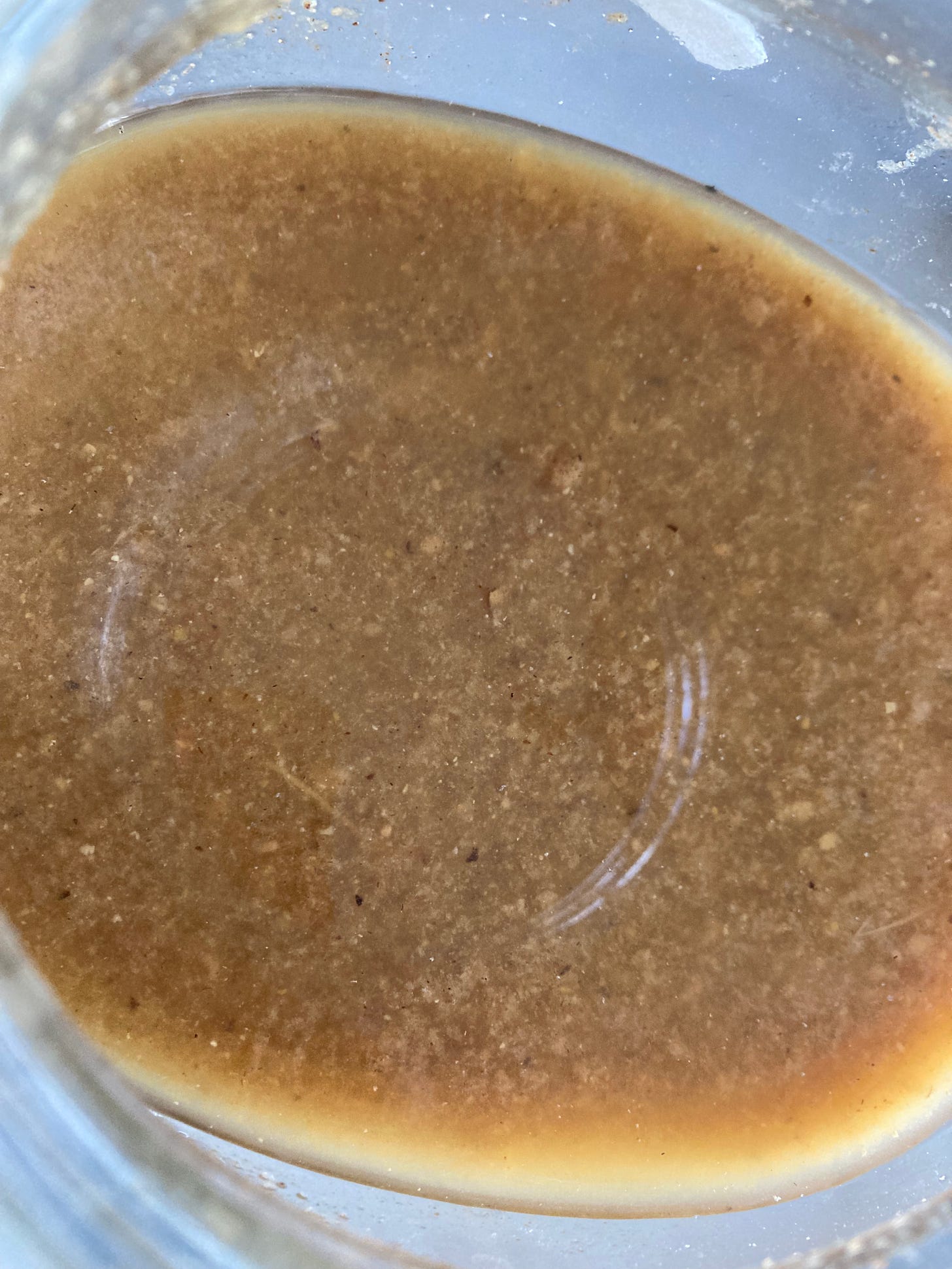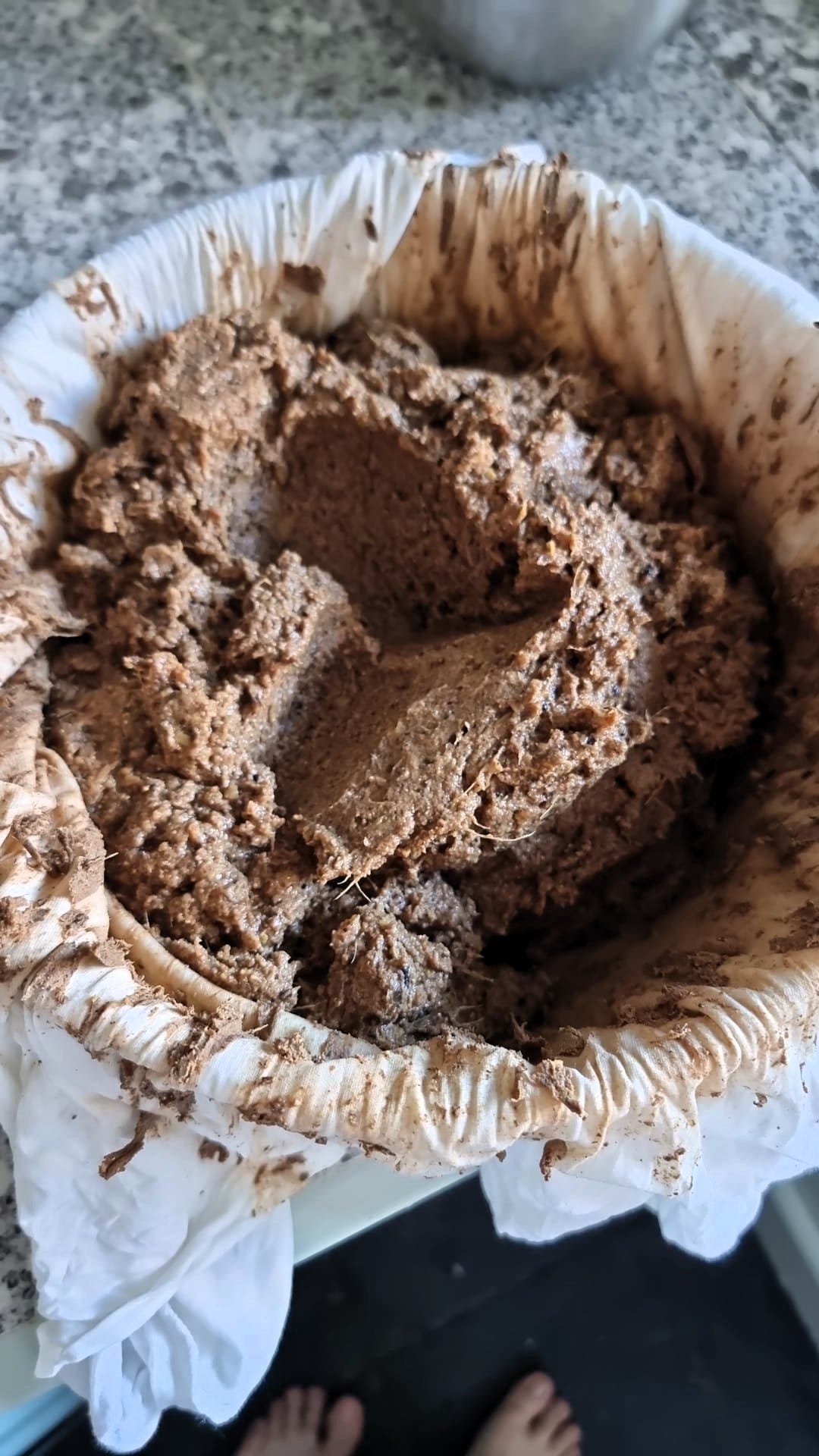BANANA SHOCHU Project
My Dad is home distilling. He is making palinka - the well known hungarian spirit. And he does it pretty well good after all these years of practise. No surprise i got myself into fermentation...
Im planning to write this post for quite a long time now - since I’m back from my latest holidays in Hungary. And I was soooo excited to share all that happened there. But first I need to share some bits of information about booze distilling in the UK so just better to know these things before you get in trouble.
Here in the UK, it is illegal to distil alcohol at home without the appropriate licenses and permits. This applies whether you are distilling for home consumption or commercial use. The reason that distilling is more strictly regulated than home brewing and wine making is due to the distillation process involving concentrated alcohol levels.
Rectifier’s Licence: This is a specific type of licence issued by HM Revenue & Customs (HMRC) that allows the holder to engage in the rectification of spirits. Rectification is the process of blending, refining, or treating already distilled spirits to achieve a desired flavour, quality, or strength.
Compounder’s Licence: A type of licence issued by HM Revenue & Customs (HMRC) that permits the holder to compound or mix alcoholic beverages without the need for distillation. The purpose of a compounder’s license is to regulate and control the production of alcoholic beverages that do not involve the process of distillation. A compounding licence does allow you to mix or blend alcoholic beverages, flavour and fortify them, and dilute them.
To translate these words into something simpler: you can get a licence if you are working with already distilled spirits. For example, if you infuse them (add sloe to sloe gin for Christmas) or re-distil natural spirits by adding flavours (most gin companies in the UK). You can get these licences (I’m not entirely sure how difficult it is though) and you would probably need another licence to be able to sell the booze you just made. Yes. This is the UK. Meanwhile, you can ‘cook’ your wines and beers at home FREELY. Bit crazy but hey. Safety first (I guess).
Luckily I am a member of the Fermenters Guild in the UK and I got to experience some of the licence-holder members’ work. Can learn so much about sugars and yeast and the natural way of things - and how to control/ do we need to control certain things.
BUT. Let me not waste more time jumping into the real project.
THE BANANA SHOCHU. - Who missed it from my Instagram a quick catch-up: a few months ago i got obsessed with banana peels. Bla bla bla i made several cool projects with it from energy balls to banana bread and even Maillard to miso and chocolate truffles. It’s amazingly versatile i love it. Then Melanie, a friend of mine made me try DISCARDED banana peel rum. It was very nice, was smooth and velvet and beautiful… BUT READING THE LABEL THEY USE A BANANA PEEL EXTRACT. At the very same moment, i got the ‘light bulb’ effect and i could not stop my brain. I connected the banana peel (and bananas) to starches and sugars, then i connected starches and complex sugars to amylase, then i connected amylase to koji, koji to sugars and sugars to yeast and yeast to alcohol. And suddenly i had a whole new project i needed to carry on with... Creating banana/peel rum from scratch by using bananas and koji and going through a very similar process to sake then from sake to shochu.
footnote: it was obvious that I can’t do this in the UK mostly because it’s illegal and of course, i dont have a pot still available anywhere around me. So i timed this very well with one of my longer home visits in Hungary. In Hungary, you can distil spirits at home for home consumption - this is what my dad does.
FIRST ROUND APRIL - MADE A BANANAZAKE. A banana amazake :) by gathering together water, whole bananas, Maillard banana peels and koji rice. Let them all sit at 60 for 12-16 hours while hopefully the amylase does its job and turns all complex sugars into simple sugars. Then you add your yeast and let the simple sugars slowly turn into booze. In classic circumstances, you end up getting sake (rice wine). Here i ended up with some weird and wonderful banana wine. Was very floral and tropical and acidic of course. I let this wine sit on its lees for a month approx while i was back in the UK and repeated the bananazake project with a few more modifications for better results (you can see this on Insta).
SECOND ROUND JUN - READY TO BOIL BOY :). Back home we were finally ready with Dad to try this weird and wonderful experiment. So my dad is a very traditional palinka maker - he has his tricks and secrets i want to learn but i also have amazing friends with lots of spirit knowledge in the UK doing things in very different ways. So i’m just hanging between these two solid points in life and gathering my very own experiences.
My dad never really tastes his booze only at the end of the process when he needs to cut the end off, basically he never does proper cuttings. I was the opposite - i was doing lots of little cuts and was tasting all the time (he got quite annoyed to be fair LOL).
Footnote: Cuts are the points in a distillation run where the distiller separates the distillate into separate fractions (divisions between sections of the run). In general distilling talk, cuts and fractions have generally been referred to just as "cuts" using the same term for both the cut points and sections of a run (i.e., the "cut to hearts" and "the hearts cut" are different things), although in this article the two will be treated as separate terms to avoid confusion. In order to make good cuts, it is important to understand what the different fractions of a run are, and how to recognize them. Cuts are generally divided into four fractions: foreshots, heads, hearts and tails.
But i really wanted to have a real-life learning lesson so i made some notes during the first ‘cutting’ of my life back home.
BEFORE smell: between sake and banana bread with nutmeg and allspice (old school bananas not modern bananas)
WINE RUN - when we go from a wine to a low ABV ‘spirit.
First dribbles: Christmas cake, and rice pudding
From coconut & banana gone to Christmas spices (xmas cookies from Aldi) dark sugar, nutmeg, raisins, allspice
Pure rummy biscuits
Down to 45% - pure biscuits and brown sugar, a bit of bitterness.
30% - bad rotting, stop
SPIRIT RUN:
Initial banana 83%
Rum and biscuits, little white grape
Short cuts, 80+
Hearts: Cinnamon, oily n thick
Lots of green fruits
Pear, kiwi with zero sugar
Citrus, tropical, maybe thyme?
79% for ages…
Thyme and oregano, sweet molasses
Stew bananas
60% - tails coming…
57% greasy banana
Herby, Ginny Herby
Tails…. Baaad, cheesy greedy cardboard banana
Sweaty penis (sorry about that lol)
END RESULTS:
4 heads - too harsh
3 heads nice
4 good banana hearts
73% after cuts - final 44%
Between white whiskey and white rum with some banana and spice on the back.
Lots of bubbles - lots of oils, very light.
Possible ageing with charred oak and dehydrated banana chips
YES. THAT WAS AN AWESOME JOURNEY.
The next day I blowtorched some cashew chips and squeezed it in the bottle with a handful of organic chewy banana chips. Now it’s ageing in a dark shed (hoping that my dad doesn’t start to like bananas at this time in his life LOL) and I can’t wait to next month when I will fly home for a quick visit to be able to taste it after its first settling.
My beautiful beautiful banana ‘palinka’ shochu.
footnote: then the story continues with my next big question… is a distilled spirit from scratch better than a re-distilled one? If I make an elderflower wine from scratch and distil it to a spirit can carry better flavour compounds than a re-distilled or an infused one? Or perhaps can lose more of the liveliness and freshness during that long process and yeast engagement? And how about using a ROTOVAP - a machine that allows us to distil or re-distil stuff at a very low temperature under high pressure? Can we protect more volatile compounds under more gentle circumstances? Lots of questions - hope answers come at some point in the future…











